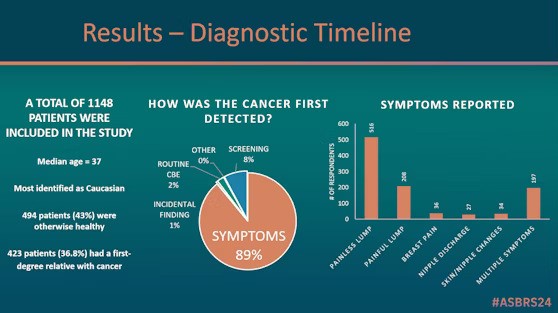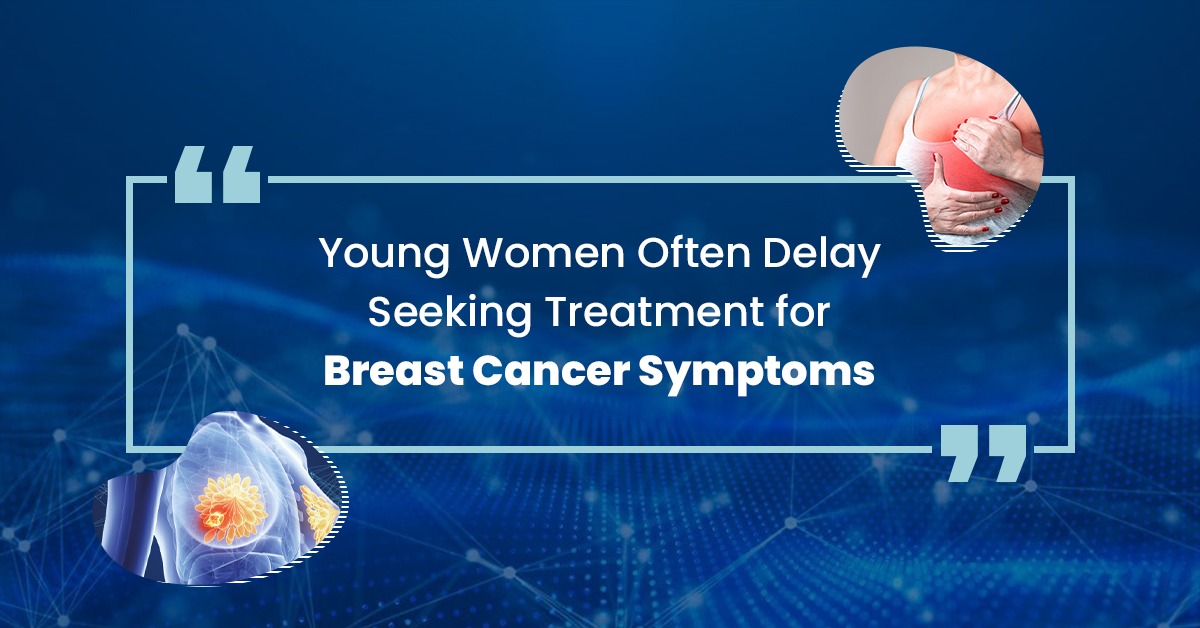Introduction
Breast cancer is a formidable adversary, and early detection is crucial for successful treatment. However, for many young women, recognizing and acting upon the symptoms of breast cancer can be fraught with delays. Recent studies reveal that youthful ladies often wait two weeks after noticing alarming breast symptoms before consulting a specialist. Astonishingly, one-third of these young patients wait more than a month to seek care, significantly affecting their prognosis. But what drives these delays, and how can awareness be improved?

Delays in Seeking Treatment
Analysts have discovered that, on average, young women waited two weeks after noticing alarming breast symptoms before consulting a specialist. Shockingly, one-third of young breast cancer patients delayed seeking care for more than a month. These delays can be detrimental, according to lead researcher Dr. Katherine Fleshner from the University of Calgary in Canada. “Young women often do not undergo routine mammography screenings, and since breast cancer is rare in this age group, they are usually diagnosed at a later stage than older patients,” Fleshner explained. “They may ignore or dismiss their concerns initially.”
Breast cancer in women under 40 is uncommon but often presents with greater disease burden and worse survival compared to the post-menopausal population. Given its infrequency, it is not well-understood how young patients initiate contact with care and how they are investigated before establishing the diagnosis. Whether young women experience diagnostic delays and whether it might impact survival is unclear. However, their cancers tend to be more aggressive, making prompt medical attention crucial, Fleshner emphasized.
The RUBY Study
To better understand this issue, researchers examined surveys from 1,148 patients collected between 2015 and 2022 as part of the Reducing the Burden of Breast Cancer in Young Women (RUBY) project. The RUBY study involves young breast cancer patients diagnosed before their 41st birthday. The average age of participants was 37. Nearly nine out of 10 patients (89%) in this study had a symptom of breast cancer. Of those, 77% had a lump they could feel in their breast. Other symptoms included swelling of the breast, skin dimpling, breast or nipple pain, nipple retraction, nipple discharge, and swollen lymph nodes.
Reasons for Delays
The majority of young women with breast cancer present with palpable, often painful masses. A significant proportion of women experienced a patient delay, suggesting opportunities for increased education regarding the presentation of early-onset breast cancer. The study found that the median number of weeks patients waited was 2.0, but 364 patients (31.7%) experienced a patient delay, defined as waiting more than four weeks from the onset of symptoms to the first contact with the healthcare system. Most patient delays were attributed to a lack of awareness of associated symptoms: 27.7% of patients were not concerned about their symptoms, and practitioners falsely reassured 3.9%. Other reasons included difficulty accessing timely care (3.6%) and conflicting priorities (2.1%).
A “system delay” was considered more than three weeks from presentation to the first investigation, based on Canadian Partnership Against Cancer screening guidelines. One hundred sixteen patients (10.1%) experienced a system delay. When asked about the perceived timeliness of diagnosis, only 248 patients (24.4%) felt their time to assessment was not fast enough.
Importance of Seeking Follow-up Care
The findings highlight the critical importance of seeking prompt medical attention for breast symptoms. Fleshner argued that women must seek follow-up care for any breast symptoms that persist. “Even if you have seen a doctor, don’t dismiss a progressing abnormality,” Fleshner said in a news release. “Advocate for yourself to ensure you get the help you need.” After the presentation to care, most women were investigated promptly.




